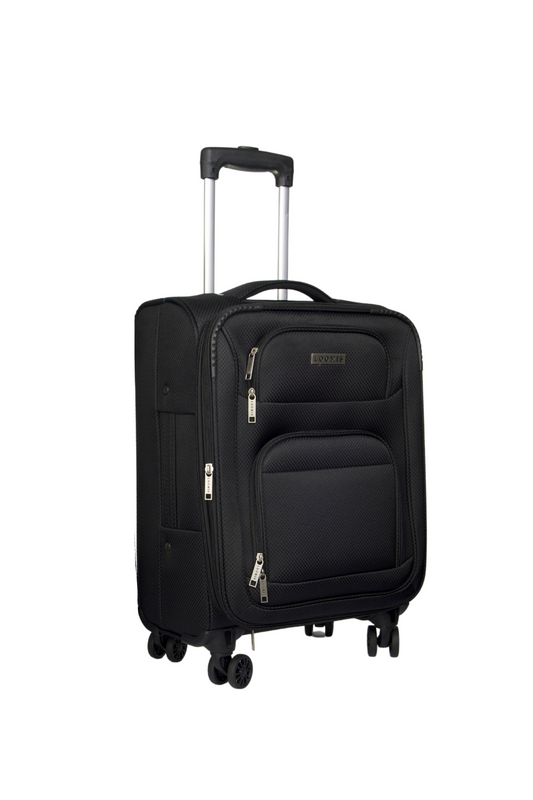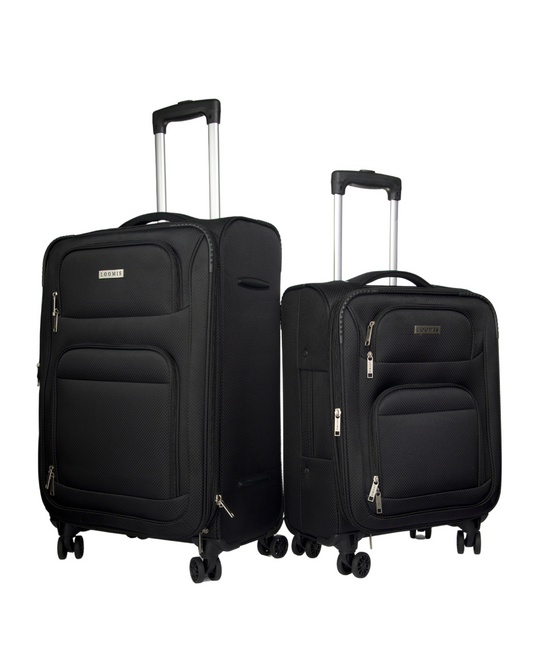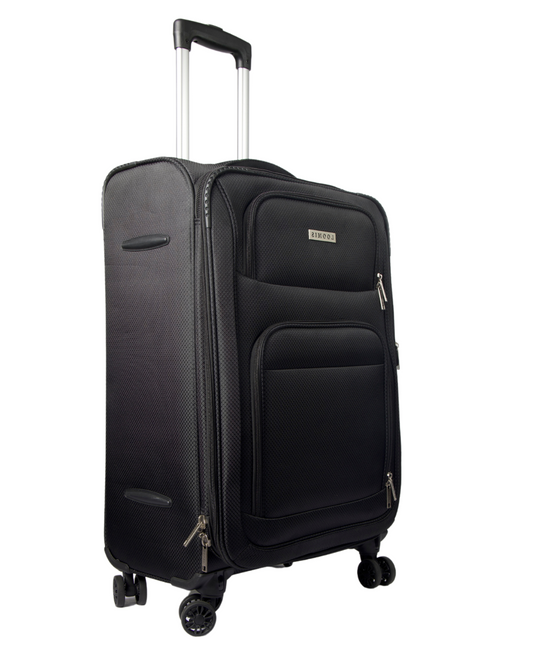Flying with a baby can be a daunting prospect for many parents, but with the right preparation and know-how, it doesn't have to be a stressful experience. Whether you're embarking on a family vacation or traveling for other reasons, these essential tips will help ensure a smooth and enjoyable journey for both you and your little one.
Plan Ahead:
Before your flight, take the time to plan and organize everything you'll need for your baby's comfort and well-being. Make a checklist of essentials such as diapers, wipes, formula or breast milk, baby food, extra clothing, pacifiers, and toys to keep your baby entertained.
Choose the Right Flight Time:
Opt for flights that align with your baby's sleep schedule whenever possible. Red-eye flights or flights during nap times can help minimize disruptions and maximize the chances of a peaceful journey.
Book a Bassinet Seat:
If your baby is under two years old and fits the criteria, consider booking a bassinet seat for extra comfort during the flight. These seats typically offer more legroom and come with a bassinet attachment where your baby can sleep or rest comfortably.
Bring Comfort Items:
Familiar items from home can provide a sense of comfort and security for your baby during the flight. Bring along their favorite blanket, stuffed animal, or pacifier to help them feel more at ease in unfamiliar surroundings.
Pack Smartly:
Be strategic about packing your carry-on bag to ensure easy access to essentials during the flight. Keep diapers, wipes, and a change of clothes in a readily accessible pouch, and use packing cubes to organize baby clothes and other items efficiently.
Be Prepared for Security Screening:
Familiarize yourself with TSA guidelines for traveling with infants and be prepared to go through security screening with baby gear such as strollers, car seats, and baby carriers. Arrive at the airport with plenty of time to spare to avoid rushing through security checkpoints.
According to the TSA, for children under two, the safest spot on a plane is in an approved child restraint system (CRS) or device, rather than on your lap. Holding your child in your arms isn't secure, especially during unexpected turbulence, the primary cause of pediatric injuries on planes.
Feed During Takeoff and Landing:
Babies can experience discomfort due to changes in air pressure during takeoff and landing. To help alleviate this discomfort, breastfeed, bottle-feed, or offer a pacifier to your baby during these times to encourage swallowing and equalize ear pressure.
Stay Calm and Patient:
Traveling with a baby can be unpredictable, and there may be moments of fussiness or crying during the flight. Stay calm, patient, and attentive to your baby's needs, and don't be afraid to ask for assistance from flight attendants if needed.
Engage in Distraction Techniques:
Bring along a variety of toys, books, and interactive games to keep your baby entertained during the flight. Singing songs, playing peek-a-boo, or engaging in gentle rocking motions can also help soothe your baby if they become restless.
Take Care of Yourself:
Last but not least, don't forget to prioritize your own well-being during the journey. Stay hydrated, eat nutritious snacks, and take breaks whenever possible to rest and recharge. Remember, a well-rested and relaxed parent is better equipped to care for their baby during the flight.
Flying with a baby doesn't have to be a source of anxiety or stress. By following these essential tips and staying flexible and adaptable, you can make the most of your travel experience and create cherished memories with your little one. Safe travels!
Frequently Asked Questions about Flying with a Baby:
Q: Can I fly with my baby?
A: Yes, most airlines allow infants as young as a few days old to fly, but it's advisable to consult with your pediatrician before traveling.
Q: Do babies need their own ticket?
A: Most airlines require infants over the age of two to have their own ticket, although some offer discounted fares for children under two if they sit on a parent's lap.
Q: What documents do I need to bring for my baby?
A: To fly with your baby, typically a passport is sufficient for domestic and international flights, While the TSA doesn't usually mandate a birth certificate, airlines may request proof of age. Acceptable documents can include a passport, birth certificate, immunization record, or other medical records. Some airlines may also require additional boarding verification for infants under two who won't have their own seat, be sure to check with your airline.
Q: Can I bring a stroller and car seat on the plane?
A: Yes, most airlines allow you to bring a stroller and car seat for your baby. Strollers can usually be checked at the gate, while car seats can be used on the plane if they are FAA-approved.
Q: How can I soothe my baby during the flight?
A: Bring along familiar comfort items such as pacifiers, blankets, or toys to help soothe your baby. Breastfeeding or bottle-feeding during takeoff and landing can also help alleviate ear pressure.
Q: What if my baby cries during the flight?
A: It's normal for babies to cry during flights due to changes in air pressure and unfamiliar surroundings. Stay calm and try comforting techniques such as rocking, singing, or walking up and down the aisle.
Q: Can I bring breast milk or formula on the plane?
A: Yes, TSA allows you to bring breast milk, formula, and baby food in quantities exceeding the usual liquid limits. Be prepared for additional screening at security checkpoints.
Q: How can I ensure my baby's safety during the flight?
A: Follow FAA guidelines and use an approved child restraint system (CRS) or device for your baby. Additionally, secure your baby in their own seat instead of holding them on your lap during the flight.
Q: What if my baby gets sick during the flight?
A: Bring along a small first aid kit with baby-friendly medications and remedies for common ailments. If your baby becomes seriously ill during the flight, notify the flight attendants for assistance.
Q: Are there any special accommodations for breastfeeding mothers?
A: Most airlines accommodate breastfeeding mothers and can provide privacy if requested. Some airports also offer nursing rooms or dedicated breastfeeding areas for added comfort and convenience.
Our commitment to ad-free content ensures your uninterrupted reading and easy access to printable checklists. Our bloggers rely on the sales of our premium luggage displayed below for their livelihood. Supporting our Atlanta-based Loomis Travel luggage manufacturer directly ensures you bypass retail markups and receive top-notch quality and affordability. If you've found our tips beneficial, consider subscribing for more valuable insights. Bon Voyage!






